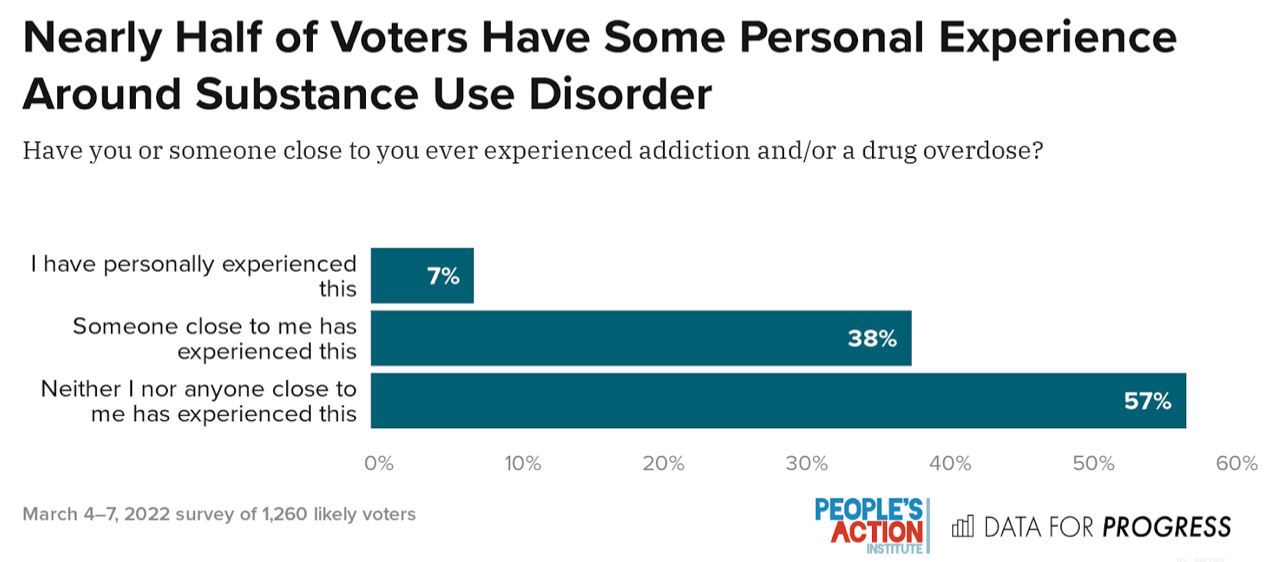Bipartisan Majority of Voters Support Harm Reduction Measures and Decriminalizing Small Amounts of Drug Possession
By Anika Dandekar
In the past year, over 100,000 Americans died from drug overdose, up nearly 16 percent from the previous year. New research from Data for Progress and People’s Action suggests that harm reduction policies and decriminalization, which have been proven to save lives, are supported by large majorities of the American electorate.
A recent national survey of 1,260 likely voters conducted by Data for Progress finds that voters, across partisan lines, support expanding the use of medication-assisted treatment, increasing access to opioid overdose-reversal medication, opening overdose prevention centers, and decriminalizing possession of small amounts of drugs.
Baseline Attitudes and Experiences Among Voters
Forty-three percent of voters say they or someone they are close to has experienced an overdose or addiction.
We asked voters how much they had read or heard about harm reduction measures. Among the voters who said that they have read or heard at least “a little” about specific harm reduction measures like overdose prevention centers, syringe exchange programs, Narcan (the brand name for the opioid overdose-reversal drug naloxone), or medication-assisted treatment, 60 percent report hearing mostly positive things about them, compared to 19 percent who report hearing mostly negative things. This finding of net positive previous exposure to harm reduction methods holds true across Democrats, Independents, and Republicans.
Bipartisan Majority of Voters Support Harm Reduction Measures
Among all likely voters, 79 percent (with a +64-point net margin) support expanding use of medication-assisted treatments that support individuals on their recovery path and help reduce withdrawal symptoms from opioid use disorder. We also find similarly large margins of support among Democrats (+77 points), Independents (+62 points), and Republicans (+52 points).
Among all voters, support for increasing access to naloxone, the drug that reverses opioid overdoses, is backed by a +67-point margin. Over three-quarters of voters of all partisan identities support increasing access to naloxone — 84 percent of Democrats, 79 percent of Independents, and 76 percent of Republicans, respectively, hold this view.
Among all likely voters, 64 percent (with a +33-point net margin) support opening overdose prevention centers, where people who have pre-obtained drugs can use them in a sterile, safe location, supervised by medical professionals in case of an overdose. We also find bipartisan support with +67-point, +31-point, and +2-point margins of support among Democrats, Independents, and Republicans, respectively.
Sixty-nine percent of all likely voters also support a national measure similar to Oregon’s, which decriminalizes possession of small amounts of drugs, by a +44-point margin. We also find similarly high rates of support across partisan identities, with Democrats, Independents, and Republicans backing this policy by +70, +56, and +15 percentage points, respectively.
Toplines for this polling can be found here.
Anika Dandekar (@AnikaDandekar) is a polling analyst at Data for Progress.






